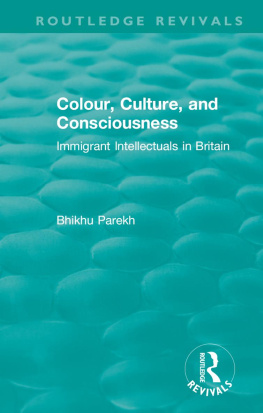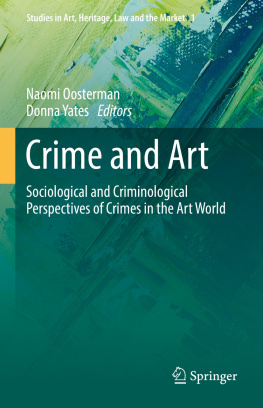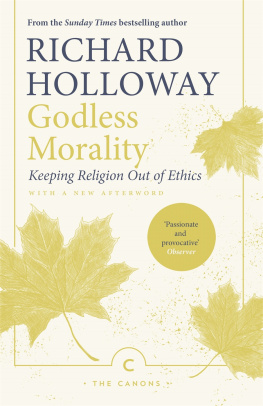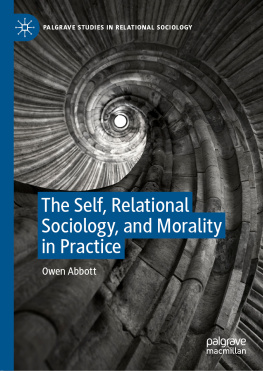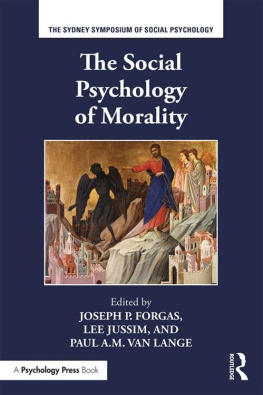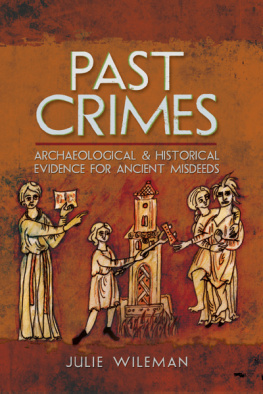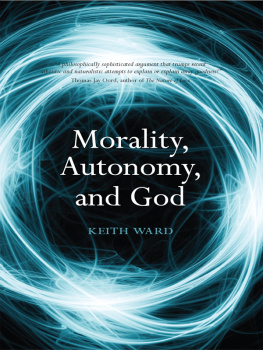Sex, Crime and Morality
Over the past few decades, there has been a marked increase in media and debate surrounding a specific group of offences in modern democratic nations that are labelled crimes against morality. Included within this group are offences related to prostitution and pornography, homosexuality, and incest and child sexual abuse. This book examines the nexus between sex, crime and morality from a theoretical perspective.
This is the first academic text to offer an examination and analysis of the philosophical underpinnings of sex-related crimes and social attitudes towards them, and the historical, anthropological and moral reasons for differentiating these crimes in contemporary western culture.
The book is divided into three sections corresponding to three theoretical frameworks:
examines the moral temporality of sex and taboo as a foundation for legislation governing sex crimes.
focuses on the geography of sex and deviance, specifically notions of public morality and the publicprivate divide.
examines the moral economy of sex and harm, including the social construction of harm.
Sex, Crime and Morality will be key reading for students of criminology, criminal justice, gender studies and ethics, and will also be of interest to justice professionals.
Sharon Hayes is Senior Lecturer in Justice at Queensland University of Technology, Brisbane, Australia. Sharon has been researching and teaching in the areas of criminal justice, criminology and ethics for the past twenty years, and has published extensively in the areas of sexuality/gender studies, specifically sex and crime, same-sex domestic violence and sexuality in the classroom.
Belinda Carpenter is Professor in the School of Justice, in the Faculty of Law at Queensland University of Technology, Brisbane, Australia. She has published widely on the issue of prostitution, including the book: Rethinking Prostitution: Feminism, Sex and the Self. New York, Peter Lang (2000).
Angela Dwyer is Senior Lecturer in the School of Justice, in the Faculty of Law at Queensland University of Technology, Brisbane, Australia. Her research interests include sexuality and criminal justice, sex and crime, sex trafficking, prostitution, the body and criminality, young people and popular culture, and qualitative research methods.
Sex, Crime and Morality
Sharon Hayes and Belinda Carpenter
with Angela Dwyer
First published 2012
by Routledge
2 Park Square, Milton Park, Abingdon, Oxon, OX14 4RN
Simultaneously published in the USA and Canada
by Routledge
711 Third Avenue, New York, NY 10017
Routledge is an imprint of the Taylor & Francis Group, an informa business
2012 Sharon Hayes and Belinda Carpenter with Angela Dwyer
All rights reserved. No part of this book may be reprinted or reproduced or utilized in any form or by any electronic, mechanical, or other means, now known or hereafter invented, including photocopying and recording, or in any information storage or retrieval system, without permission in writing from the publishers.
Trademark Notice: Product or corporate names may be trademarks or registered trademarks, and are used only for identification and explanation without intent to infringe.
British Library Cataloguing in Publication Data
A catalogue record for this book is available from the British Library
Library of Congress Cataloging-in-Publication Data
Hayes, Sharon.
Sex, crime and morality / by Sharon Hayes, Belinda Carpenter with Angela Dwyer.
p. cm.
ISBN 978-1-84392-816-4 (hardback) ISBN 978-1-84392-815-7 (pbk.) ISBN 978-0-203-15373-4 (ebk.) 1. Sex crimesMoral and ethical aspects.
I. Carpenter, Belinda J., 1963- II. Dwyer, Angela. III. Title.
HV6556.H39 2012
364.15'3dc23
2011022967
ISBN: 978-1-84392-816-4 hbk
ISBN: 978-1-84392-815-7 pbk
ISBN: 978-0-203-15373-4 ebk
Contents
Acknowledgments
Many people gave of their time and support during the writing of this book, and we would like to acknowledge and thank them for their assistance. In particular, we thank Professor The Hon. Michael Lavarch and the Faculty of Law, Queensland University of Technology, for supporting this project with professional development leave funding, and Professor Kerry Carrington, Head of the School of Justice at QUT, for allowing us this time to write, as well as for her ongoing encouragement and advice. The School of Communication, Cultural Studies and Media at Nottingham Trent University was kind enough to provide space, support and a rich scholarly environment for Sharon during writing, and the arguments in this book benefited greatly from discussions with Liz Morrish, Louise Cummings, Gary Needham and other members of the school. Feedback from students of the Master of Criminology seminar at Loughborough University was also enormously helpful. Chris Holt, of Federation Press, was generous of his time and feedback in the early stages, which we very much appreciated. Thanks also to Julia Willan for her editorial support and for processing the manuscript so quickly into production. Wed also like to thank colleagues at QUT, especially Gordon Tait and Matthew Ball, for the many theoretical and practical discussions that fed the development of our thesis. Finally, we owe a huge debt of gratitude to our families, partners and children, without whose encouragement and support we would never have finished.
Introduction
Recently, we were fortunate enough to attend a seminar on sex work and sex blogging, listening to a paper by Kitty Stryker, sometime postgraduate student, full-time sex worker/blogger and self-proclaimed dominatrix.
As recently as the 1980s, feminists were arguing that sex work and pornography damaged women beyond repair, in sex as something to which more and more individuals are subscribing. This book takes that observation as its starting point.
Concomitant to this shift, however, we have also seen a massive increase in the legislation and regulation of other forms of non-normative sexual behaviour. At no other time in history has incest and child sexual abuse, for example, been more publicly reviled. Similarly, sex trafficking has come under fire, particularly in the United States and the UK. Both have created what we often hear described as moral panics, fuelled by both media and political attention, creating a perception in society that sexual predators are everywhere and that our children are no longer safe. The nexus between sex, crime and morality, then, is complex and multilayered, and grounded in conflicting social perceptions and discourses. We hope this book unravels some of this complexity and provides insight into how sex, crime and morality interact in our society.
The germination of this book occurred over several years after two of us were asked to write a chapter for a criminology textbook. The topic was to be crimes against morality and, initially, we conceived of such crimes as those we sometimes refer to as victimless crimes. After several brainstorming sessions and a couple of bouts of procrastination, we discovered that our perceptions werent quite right that, in fact, the very naming of a crime as victimless was problematic, fraught with complexities from a variety of standpoints, including (but not confined to) feminism, psychology, public health and criminology itself. The idea that a behaviour or action entered into by informed adults (and which does not harm others) should be criminalized seems paternalistic at best, and yet it is clear that morality and moral values underpin so many of our laws so, why not these ones? On the other hand, there is some doubt about whether crimes such as prostitution and recreational drug use are actually victimless. Unless an individual acts in complete isolation, their actions exponentially affect a number of others, depending on the social, legal and personal relationships with which they engage. To make things more complicated, we realized that the kinds of crimes that raise the most public debate concerning criminalization were those that had something to do with sex. While decriminalization of recreational drug use has been raised a number of times in public arenas over the past three decades, these are not the kinds of crimes that tend to create moral panic rather, it was crimes such as child sexual abuse, sex work and pornography that raised levels of public ire on a regular basis, and that were the cause of spirited exchanges in both media and parliament. Thus began our ongoing debate, through which we slowly came to realize that most crimes against morality had less to do with being victimless and much more to do with values and beliefs about sex, sexuality and the family.


